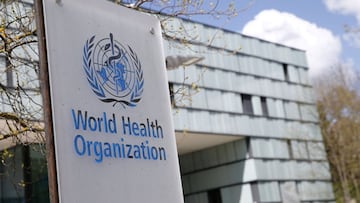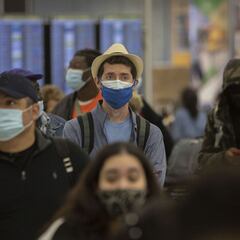What disease does WHO say is causing deaths in South Sudan?
A mysterious disease is spreading in a South Sudan which is claiming the elderly and young causing almost 100 fatalities so far. Cholera has been ruled out.

In mid-November the South Sudanese Ministry of Health received a report of several deaths from the local authority in the northern county of Fangak stemming from an undiagnosed illness. Since then 97 people have died, mainly elderly and children aged between 1 and 14.
South Sudan has been experiencing its worst flooding since 1962, which the UN has blamed on climate change, creating serious risks of an increase in waterborne diseases. A health official from the area told BBC that testing for cholera came back negative.
Also see:
- Covid-19 Omicron variant: live updates
- Omicron leads to Christmas Eve flight cancellations
- Omicron symptoms possibly manifest sooner than from previous variants
- Can a PCR tell me which variant of covid-19 I have?
Still awaiting findings from WHO medical team
The Ministry of Health of South Sudan in early December reported that dozens of people had died in Fangak, Jonglei State. This area near the border with Sudan has been one of the areas worst hit by the devastating flooding that has affected around 835,000 people and displaced 35,000 according to a UN report.
The news of deaths from the unknown illness prompted the World Health Organization (WHO) to send a rapid response team to investigate. Sheila Baya from the WHO South Sudan told the BBC “provisionally the figure that we got was that there were 89 deaths.” The medical researchers had to be ferried in by helicopter as flooding has made the area inaccessible via land routes.
Huge parts of South Sudan have been flooded now for a year and a half. It has triggered a climate refugee crisis on top of what was an already-existing conflict-induced refugee crisis. The image here is of New Fangak. This is the violence of climate breakdown. pic.twitter.com/E8Mli7mjnA
— Jason Hickel (@jasonhickel) October 14, 2021
The WHO rapid response team have since left according to Fangak County Commissioner Biel Boutros Biel speaking to ABC News, who said the latest victim was an elderly woman bringing the total to 97 killed by the disease. He also said the team's findings haven’t been released to local officials yet. A spokesperson for WHO Africa could not provide further details but confirmed that a team had been sent in November.
The main symptoms that victims are experiencing include diarrhea, high fever, joint pain, vomiting, body weakness, loss of appetite, and chest pain.
Flooding creates perfect conditions for waterborne diseases
Related stories
Doctors Without Borders put out a warning about the risks posed by the flooding including the spread of waterborne diseases. The nongovernmental aid group looked at the conditions at Bentiu camp, which is west of Fangak on the other side of the Ez Zeraf Game Reserve. At Bentiu, flooding has cutoff sewage treatment at the site.
"We are feeling droughts, we are feeling floods. And this is becoming a crisis."
— CNN (@CNN) December 7, 2021
South Sudan is one of many places struggling with the twin problem of drought followed by extreme rainfall, which together create prime conditions for devastating floods. https://t.co/YMdTrun3Iv
The thousands that have been displaced are adding to the peril of the situation. “With the conditions further worsened by the influx of new arrivals, people are at higher risk of outbreaks and waterborne diseases such as acute watery diarrhea, cholera, and malaria,” the report stated. In the case of Fangak, cholera, which is transmitted via water contaminated with the bacteria, has not been found.


